Abstract
EMGs from biceps and triceps were recorded during stereotyped elbow flexion tasks performed by 20 patients fulfilling clinical criteria for 'cerebellar deficits' and the data were compared with previously established normal standards. In a fast flexion task, 15 of 18 patients showed prolongation of the initial biceps and/or triceps components, and it is suggested that this abnormality might be an elemental feature of dysmetria. Ten of 14 patients showed the normal pattern of smooth flexion indicating that, with cerebellar deficits, smooth movements are better preserved than fast movements. The timing of the cessation of triceps activity before the initiation of biceps activity in an alternating movement was abnormal in 12 of 16 patients; this abnormality might be an elemental feature of dysdiadochokinesia.
Full text
PDF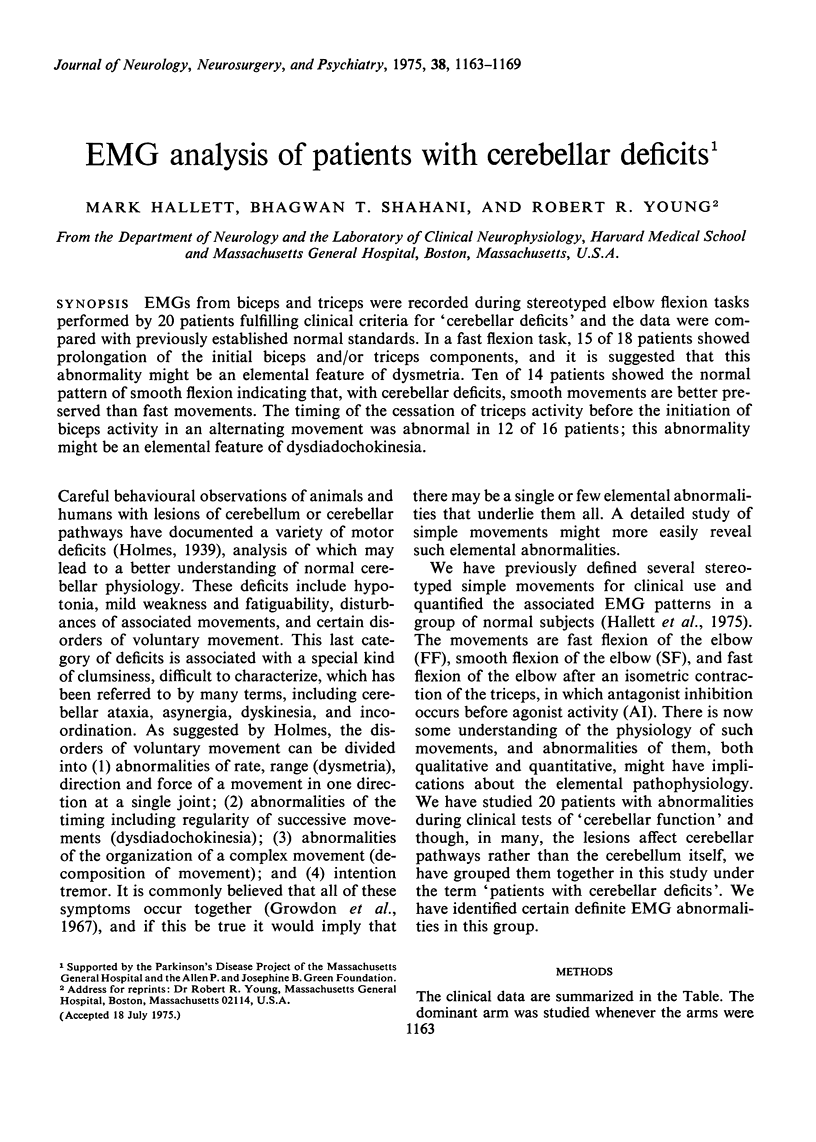
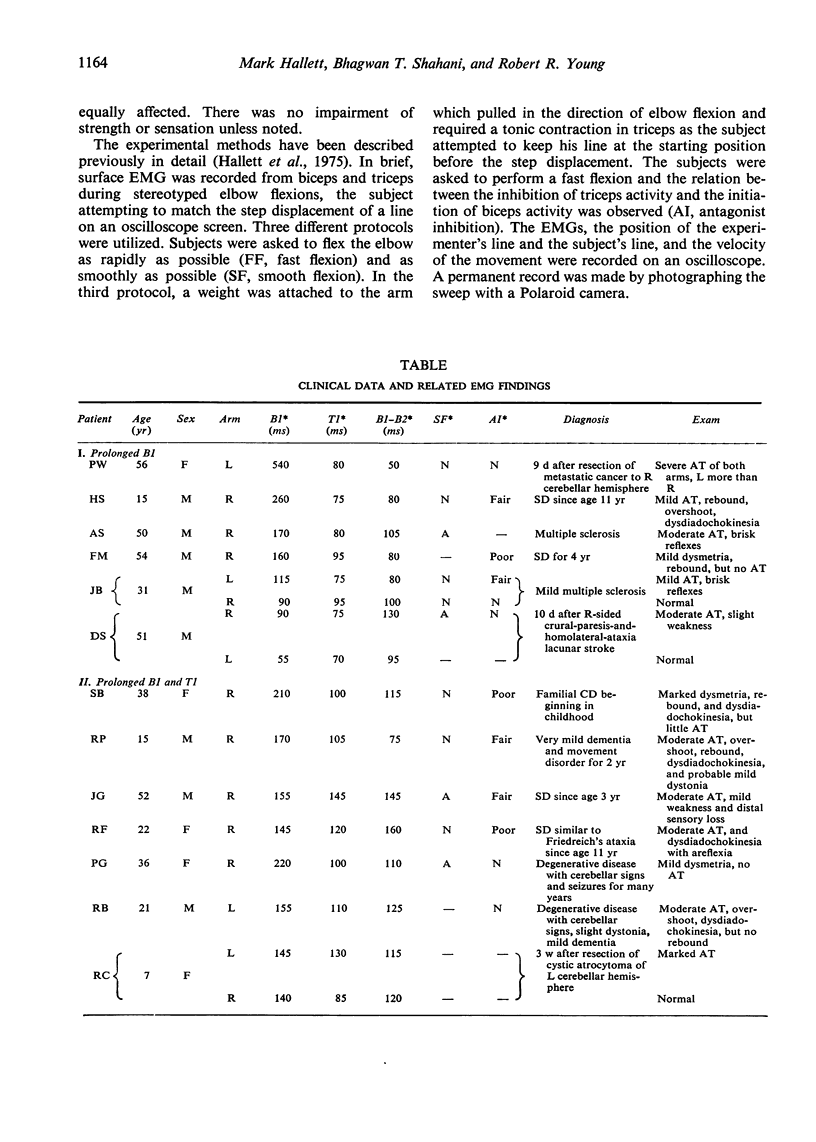
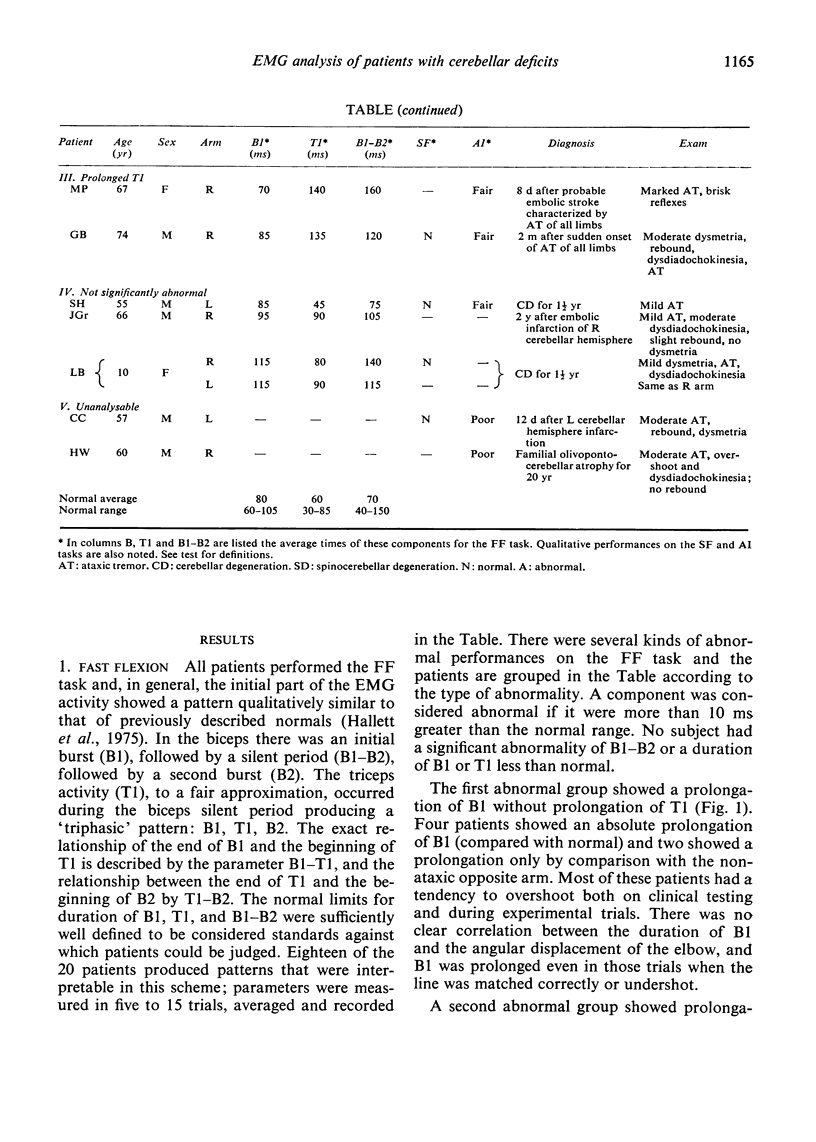
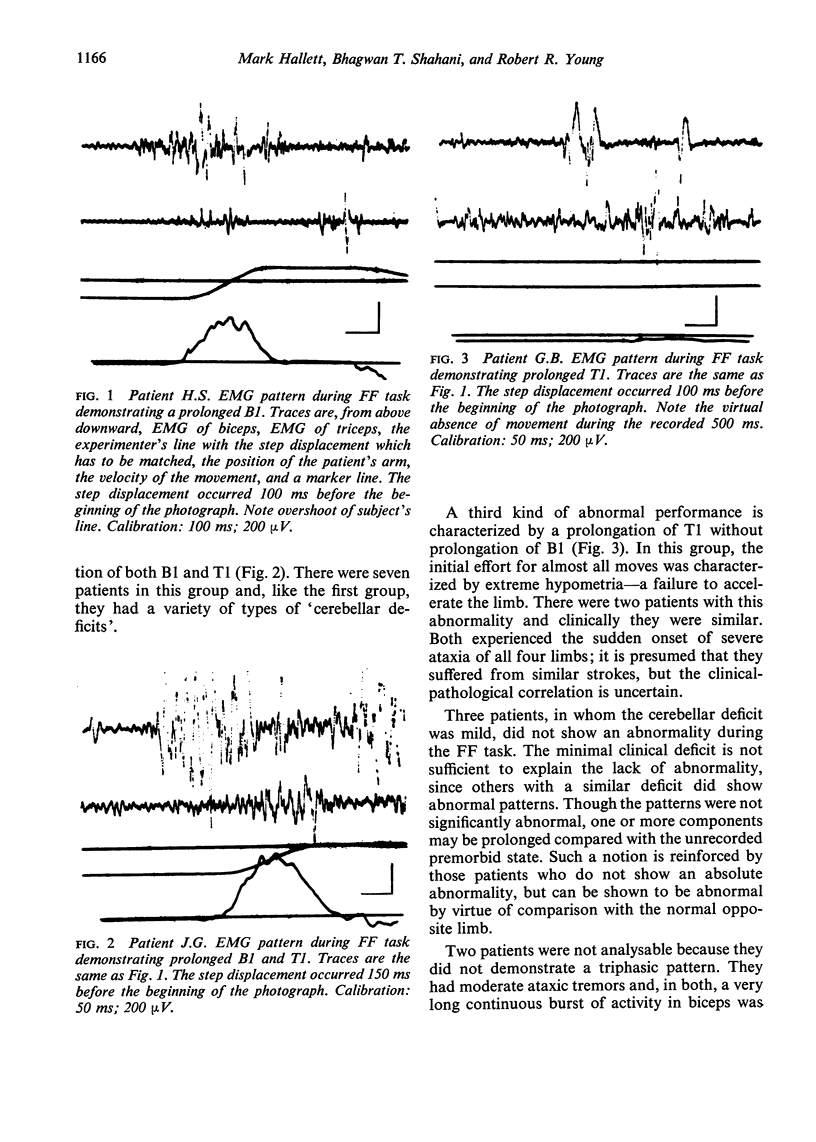
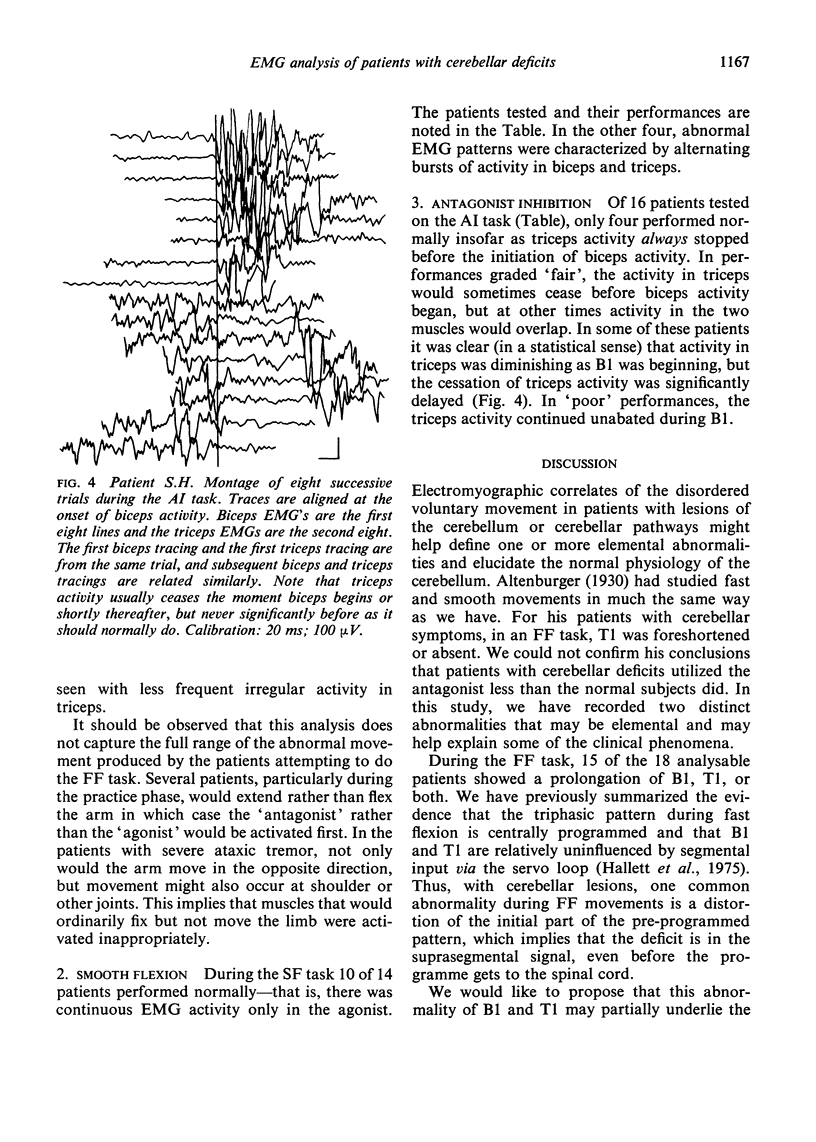
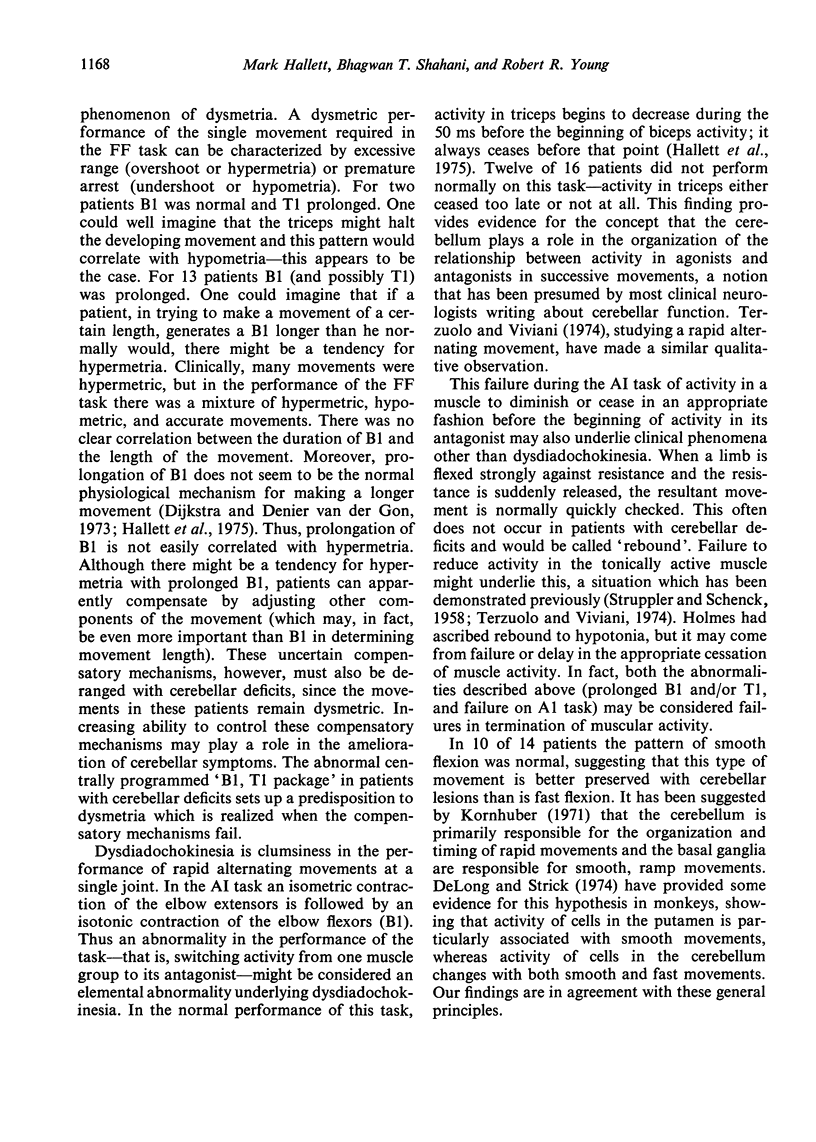
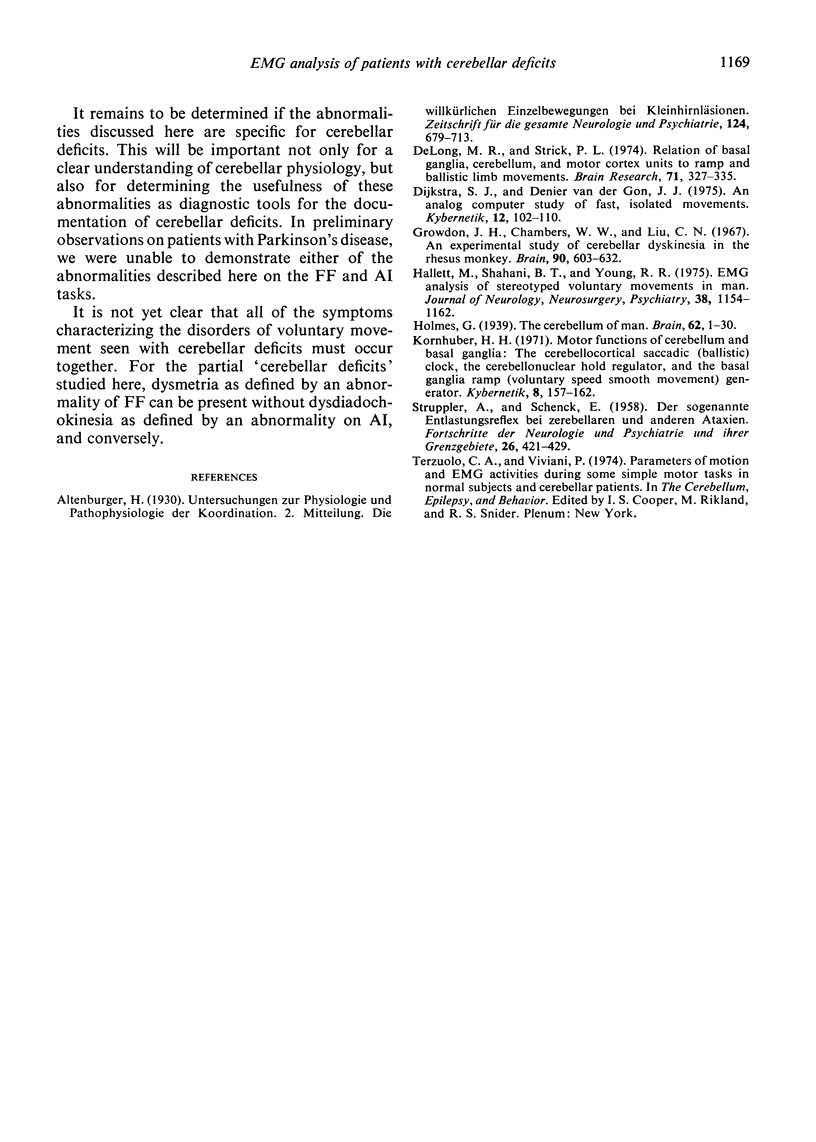
Selected References
These references are in PubMed. This may not be the complete list of references from this article.
- DeLong M. R., Strick P. L. Relation of basal ganglia, cerebellum, and motor cortex units to ramp and ballistic limb movements. Brain Res. 1974 May 17;71(2-3):327–335. doi: 10.1016/0006-8993(74)90975-5. [DOI] [PubMed] [Google Scholar]
- Dijkstra S., van der Gon J. J. An analog computer study of fast, isolated movements. Kybernetik. 1973 Feb;12(2):102–110. doi: 10.1007/BF00272466. [DOI] [PubMed] [Google Scholar]
- Growdon J. H., Chambers W. W., Liu C. N. An experimental study of cerebellar dyskinesia in the rhesus monkey. Brain. 1967 Sep;90(3):603–632. doi: 10.1093/brain/90.3.603. [DOI] [PubMed] [Google Scholar]
- Hallett M., Shahani B. T., Young R. R. EMG analysis of stereotyped voluntary movements in man. J Neurol Neurosurg Psychiatry. 1975 Dec;38(12):1154–1162. doi: 10.1136/jnnp.38.12.1154. [DOI] [PMC free article] [PubMed] [Google Scholar]
- Kornhuber H. H. Motor functions of cerebellum and basal ganglia: the cerebellocortical saccadic (ballistic) clock, the cerebellonuclear hold regulator, and the basal ganglia ramp (voluntary speed smooth movement) generator. Kybernetik. 1971 Apr;8(4):157–162. doi: 10.1007/BF00290561. [DOI] [PubMed] [Google Scholar]
- STRUPPLER A., SCHENCK E. Der sogenannte Entlastungsreflex bei zerebellarer und anderen Ataxien. Fortschr Neurol Psychiatr Grenzgeb. 1958 Aug;26(8):421–429. [PubMed] [Google Scholar]


